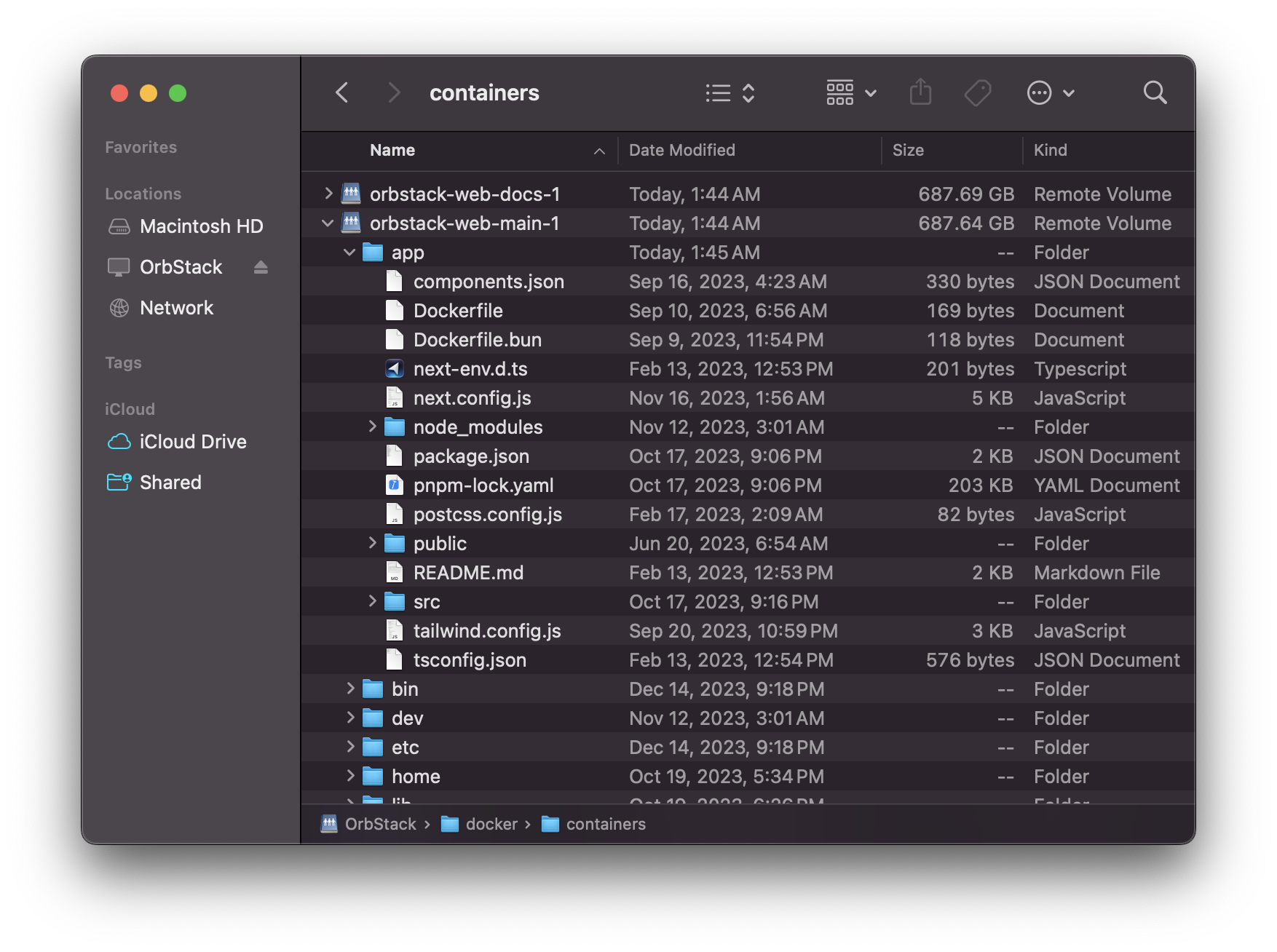OrbStack 1.2: No more "docker cp"
OrbStack 1.2 is here! This release brings native access to container files from Finder & Terminal, plus a whole swath of bug fixes.
No more copying files in and out with docker cp. No more docker exec to navigate and edit files. No more clunky file browser UIs. OrbStack 1.2 makes it as easy as opening Finder and using your favorite editor or command-line tools to view and edit container files natively, greatly simplifying debugging and development workflows.
File access in OrbStack
OrbStack has made it easy to access machine, images, and volume files for a while. We're not satisfied with basic Electron GUIs or SFTP for browsing files, so we expose the files to macOS as a shared file system. To make it easy as possible to work with images and volumes. You can find them at ~/OrbStack or in the Finder sidebar.
Images and volumes are nice to have, but containers were missing... until now.
Introducing: container files
Following the same philosophy as images and volumes, OrbStack 1.2 exposes container files to macOS as well. You can find containers in Finder, click the folder button in the OrbStack app, or use the ~/OrbStack/docker/containers/<name> path directly.
Unlike images, containers are writable, so you can edit, add, and delete files. This makes it easy to debug and develop in containers with a quick feedback loop.

How it works
The goal is to seamlessly expose container files to macOS so that native apps and tools just work, as if they are everyday files. However, macOS has very limited support for file systems out of the box, and kernel extensions can't be installed on modern Macs without disabling security measures. FUSE allows for highly customizable file systems on Linux, but there is no practical equivalent for macOS.
The solution we've arrived at NFS, a network file sharing protocol supported out of the box on macOS. We've poured a lot of effort into making it fast and reliable for reading and writing container files, which is much more challenging because of the layered nature of container file systems.
Other changes in 1.2
- Added option to disable wrapping for logs UI
- Added support for vhost-net
- Fixed complex volume migration from Docker Desktop
- Fixed DNS memory leak and high CPU usage
- Fixed file watchers not working in
/tmp - Fixed host connections timing out under high load
- Fixed IPv6 compatibility issues with some containers
- Fixed Kubernetes DNS crashing under heavy load
- Fixed rare SSH connection failures
- Fixed rebuilt image contents not updating on macOS side
- Fixed Yarn, AppImages, and Swift under x86 emulation
- Support for connecting to any port via HTTP proxy
- Support for emulating RISC-V, PowerPC, MIPS, and IBM Z
- Updates: Compose 2.23.3, buildx 0.12.0, Linux 6.5.13
Try it today
OrbStack's speed, efficiency, and ease of use makes it the ideal way to run containers, Linux, and Kubernetes if you have a Mac. The automatic migration process will copy your existing containers, images, and volumes from Docker Desktop. Once it's up and running, open ~/OrbStack in Finder to find containers, images, and volumes.
Follow @OrbStack on Twitter/X and join the Discord community to stay up to date with OrbStack news 👀